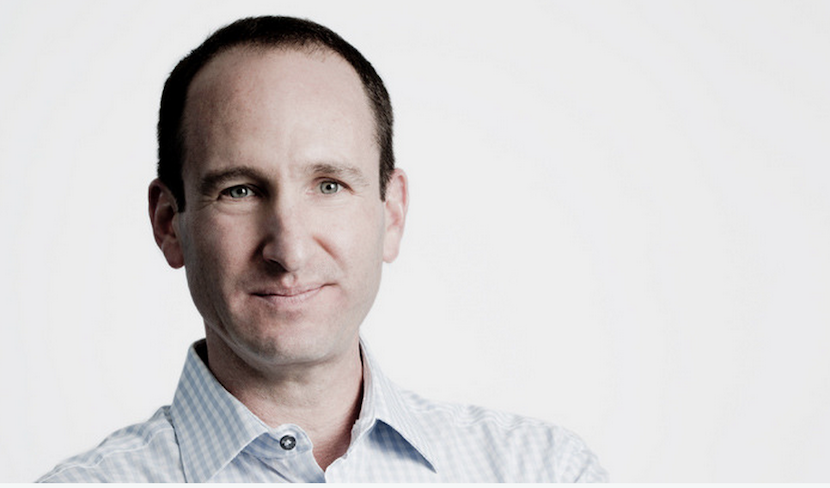The early years of the Internet during the mid and late 1990s created many overnight media sensations. Because of his impeccably timed exit at the absolute peak of the bubble and some high profile public adventures since, most South Africans may think Mark Shuttleworth of Thawte was the leader of the local pack. He wasn’t. For those who were there, that honour belongs without question to David Frankel, co-founder and CEO of Internet Solutions, Africa’s biggest internet service provider. In 1997 Frankel and the Apteker brothers Alon and Ronnie sold their company into Dimension Data, then a rapidly expanding global business headquartered in Johannesburg. Still in his 20s, Frankel was appointed a main board director of the then London and Johannesburg-listed group, and tipped internally as DD founder Jeremy Ord’s successor. But he had other ideas. A spell as a World Economic Forum Young Global Leader and a full-time MBA at Harvard saw him relocating to the US and focusing on a new life in early stage venture capital investing. He is the managing partner of Founder Collective, working with a group of other successful tech startup entrepreneurs. Their investments include the likes of Uber, Buzzfeed, Chartbeat and Kaggle – with a number of the businesses seeded early by Frankel and his colleagues having been bought by household names like Twitter, Paypal, Yahoo, Airbnb, McAfee and eBay. So if anyone can advise a start-up, Frankel’s the man. Here, with permission, is his response on Quora.com to the question: What should a startup entrepreneur know about accounting? – Alec Hogg

By David Frankel*
You should be able to answer two and a half key questions:
- How much money do I have in the bank?
- Is it enough to meet payroll? If no, when will I have enough to do so?
If you can answer those two simple questions you know enough accounting to be a seed stage entrepreneur (and beyond). I’ve known (and backed) entrepreneurs who have raised over a hundred million dollars in VC and transacted hundreds of millions more in GMV without having an in-house finance person.
Get a good textbook, learn the key spreadsheet shortcuts, and find an external bookkeeper. You can go far with those three simple resources.
One Important Thing to Remember
Accounting, per se, doesn’t need to be a core competence of a startup founder, but a passion for profit margins does. This view has fallen out of fashion in recent years, but you’ll find the companies that are most successful focus maniacally on margin.
Margin is lifeblood. Look at a company like Warby Parker. When people talk about Warby Parker’s success they attribute it to their design skill, brand, or the low-cost of their offering. But in the last few years there have been dozens of Warby knock-offs in every product category, each trying to replicate their success in cargo cult fashion. The result is that most of these businesses have flopped or failed to gain any significant traction.
What Warby’s founders recognized was that a single company called Luxottica was essentially an eyecare monopoly that manufactured glasses, did licensing deals with big fashion brands, owned all the eye care center storefronts, and even ran many of the optical insurance programs. As such they were able charge huge margins, which Warby has attacked.
There’s a similar dynamic fueling Casper. Two private equity firms control almost all mattress sales in the US and left room for a disrupter. Same goes in razors where Gillette and Schick have a functional duopoly allowing Harry’s and Dollar Shave Club to compete. To most, these businesses look like brilliant marketing plays, but in reality the success is in large part due to picking markets with generous margins.
Now you’re probably not building a new consumer product, but the lesson is instructive no matter what market you’re in. Are you looking at your business through the lens of margin? If not, why not?
I can anticipate some counters to this argument, so let me try to address them:
Facebook didn’t worry about margin for years! Snapchat is focused on growth! Fair enough. If you like coding apps I’d suggest you do so before looking to raise money. If you hit a point of virality and can leverage distribution channels there’s a chance you can enjoy explosive growth, in which case raising money will be easy. It’s much harder to make this model work if you seek funding before experiencing explosive product/market fit.
Amazon has lost money for 20 years, So why is margin so important? If you are a Bezos level intellect starting in a massive untapped market you can thrive on thin margins too! Amazon is only unprofitable because it’s obsessively focused on growing the business and reinvests every penny it can to do so. It should also be noted that Amazon operates on an absolutely massive scale. If you decide to build a business in a low margin market, know that you’ll need immense scale to make it work.
If you have technical chops and a knack for marketing to your customers you’ll figure out how to read a balance sheet and income statement in the course of building your business. By the time you get to a series A or B you need to internalize the numbers, but don’t let a lack of knowledge about lines of credit hold you back.
*David Frankel is a South African-born entrepreneur who co-founded Internet Solutions. He is one of the most admired venture capitalists in the US, and as managing partner of Boston and New York-based Founder Collective has invested at an early stage in many disruptive US companies that are now flourishing, including Uber and Buzzfeed.

